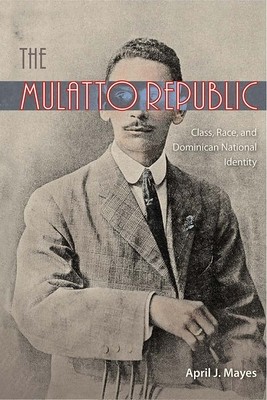
- We will send in 10–14 business days.
- Author: April J Mayes
- Publisher: University Press of Florida
- ISBN-10: 0813061962
- ISBN-13: 9780813061962
- Format: 15.2 x 22.9 x 1.2 cm, softcover
- Language: English
- SAVE -10% with code: EXTRA
Reviews
Description
"Impels the reader to not lean solely on the crutch of Dominican anti-Haitianism in order to understand Dominican identity and state formation. Mayes proves that there was a multitude of factors that sharpen our knowledge of the development of race and nation in the Dominican Republic."--Millery Polyné, author of From Douglass to Duvalier
"A fascinating book. Mayes discusses the roots of anti-Haitianism, the Dominican elite, and the ways in which race and nation have been intertwined in the history of the Dominican Republic. What emerges is a very interesting and engaging social history."--Kimberly Eison Simmons, author of Reconstructing Racial Identity and the African Past in the Dominican Republic The Dominican Republic was once celebrated as a mulatto racial paradise. Now the island nation is idealized as a white, Hispanic nation, having abandoned its many Haitian and black influences. The possible causes of this shift in ideologies between popular expressions of Dominican identity and official nationalism has long been debated by historians, political scientists, and journalists.In The Mulatto Republic, April Mayes looks at the many ways Dominicans define themselves through race, skin color, and culture. She explores significant historical factors and events that have led the nation, for much of the twentieth century, to favor privileged European ancestry and Hispanic cultural norms such as the Spanish language and Catholicism.
Mayes seeks to discern whether contemporary Dominican identity is a product of the Trujillo regime--and, therefore, only a legacy of authoritarian rule--or is representative of a nationalism unique to an island divided into two countries long engaged with each other in ways that are sometimes cooperative and at other times conflicted. Her answers enrich and enliven an ongoing debate. Publication of this digital edition made possible by a Sustaining the Humanities through the American Rescue Plan grant from the National Endowment for the Humanities.
EXTRA 10 % discount with code: EXTRA
The promotion ends in 17d.05:30:04
The discount code is valid when purchasing from 10 €. Discounts do not stack.
- Author: April J Mayes
- Publisher: University Press of Florida
- ISBN-10: 0813061962
- ISBN-13: 9780813061962
- Format: 15.2 x 22.9 x 1.2 cm, softcover
- Language: English English
"Impels the reader to not lean solely on the crutch of Dominican anti-Haitianism in order to understand Dominican identity and state formation. Mayes proves that there was a multitude of factors that sharpen our knowledge of the development of race and nation in the Dominican Republic."--Millery Polyné, author of From Douglass to Duvalier
"A fascinating book. Mayes discusses the roots of anti-Haitianism, the Dominican elite, and the ways in which race and nation have been intertwined in the history of the Dominican Republic. What emerges is a very interesting and engaging social history."--Kimberly Eison Simmons, author of Reconstructing Racial Identity and the African Past in the Dominican Republic The Dominican Republic was once celebrated as a mulatto racial paradise. Now the island nation is idealized as a white, Hispanic nation, having abandoned its many Haitian and black influences. The possible causes of this shift in ideologies between popular expressions of Dominican identity and official nationalism has long been debated by historians, political scientists, and journalists.In The Mulatto Republic, April Mayes looks at the many ways Dominicans define themselves through race, skin color, and culture. She explores significant historical factors and events that have led the nation, for much of the twentieth century, to favor privileged European ancestry and Hispanic cultural norms such as the Spanish language and Catholicism.
Mayes seeks to discern whether contemporary Dominican identity is a product of the Trujillo regime--and, therefore, only a legacy of authoritarian rule--or is representative of a nationalism unique to an island divided into two countries long engaged with each other in ways that are sometimes cooperative and at other times conflicted. Her answers enrich and enliven an ongoing debate. Publication of this digital edition made possible by a Sustaining the Humanities through the American Rescue Plan grant from the National Endowment for the Humanities.


Reviews